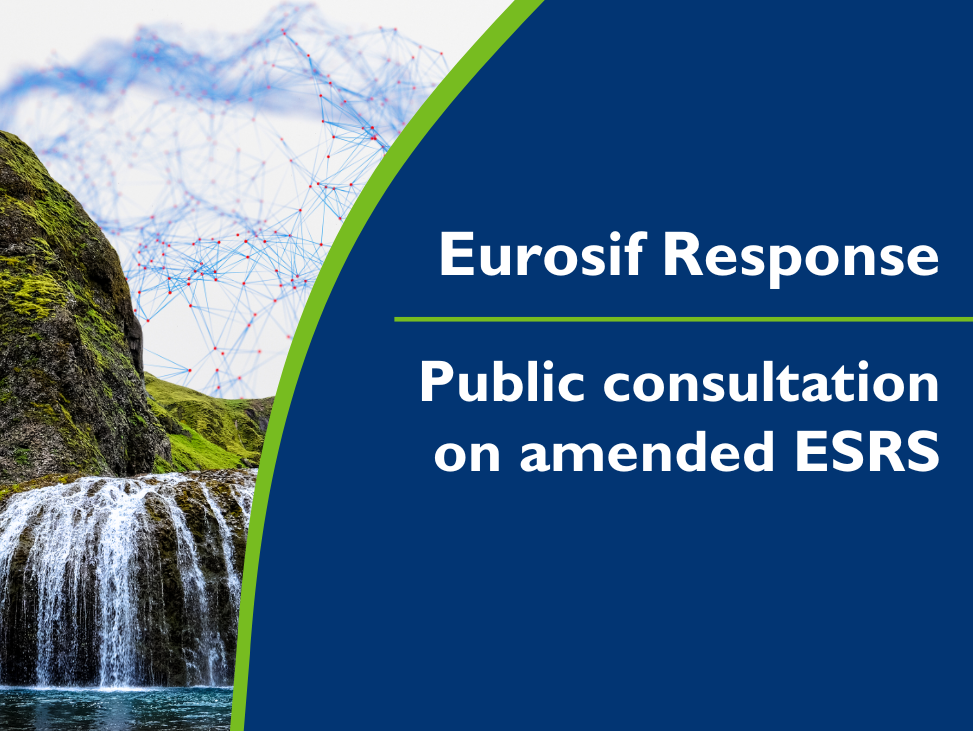Eurosif response to EFRAG’s revised ESRS public consultation
Eurosif responded to the consultation on the simplification of the European Sustainability Reporting Standards (ESRS), undertaken by EFRAG on behalf of the European Commission.
Why credible sustainability reporting matters for investment, decarbonisation, growth, and economic resilience
To make informed decisions, manage risk, meet client expectations, and align with the EU’s strategic objectives, investors need access to reliable sustainability information from the companies they invest in. As the European Sustainability Reporting Standards (ESRS) are simplified as part of the Omnibus I package (learn more here), it is essential to preserve the framework’s key disclosures, credibility, and comparability.
Our response highlights four main aspects:
- Overall, EFRAG’s suggestions manage to simplify the ESRS, while preserving most of the essential data needed by investors.
- Overall, we agree with approaches such as removing duplications and clarifying double materiality asessment.
- The 57% data points reduction suggested by EFRAG is significant and should be considered as an absolute maximum.
- Further cuts would jeopardise the credibility of sustainable corporate reporting.
- Some of the deleted datapoints were essential for investors and should be reinstated.
- While most datapoints needed for compliance with SFDR were maintained, some of the suggested changes may lead to additional compliance challenges for investors.
- Overly extensive reliefs for preparers could jeopardise the ESRS reliability.
- Quantitative and qualitative disclosures for anticipated financial effects should absolutely remain mandatory. The “Option 1” suggested by EFRAG, while still containing extensive reliefs, would be the only workable compromise.
- To prevent abuse, stricter conditions should be established for the crosscutting reliefs granted to preparers. This should include time limits and clear disclosures on the actions undertaken to improve data.
- Interoperability with international frameworks should be improved.
- Some suggested data points cuts and reliefs for preparers would lead to further divergence between the ESRS and the ISSB standards.
- Biodiversity-related disclosures should more explicitly reference international frameworks, such as the TNFD and SBTN.

